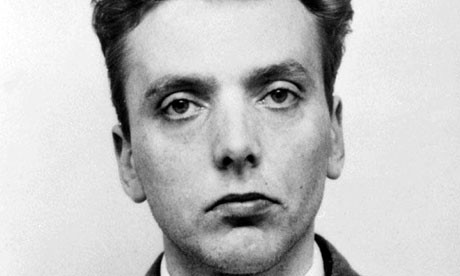Moors Murderer Ian Brady Loses Prison Move Appeal

Moors murderer Ian Brady has been told he cannot be transferred from a high-security hospital to prison as he is still suffering from a mental disorder.
Brady, 75, appeared in public for the first time in 47 years to argue that he was no longer suffering from psychosis and should be moved from Ashworth Hospital to spend the rest of his life in jail.
It is believed he wanted to be moved to a Scottish prison where he would be allowed to starve himself to death, although he refused to confirm this during the hearing.
He has been force-fed through a tube at Ashworth hospital for the past 14 years while he has been on hunger strike.
Judge Robert Atherton, who headed the tribunal at Ashworth, said: "The tribunal has concluded that Mr Ian Stewart Brady continues to suffer from a mental disorder which is of a nature and degree which makes it appropriate for him to continue to receive medical treatment and that it is necessary for his health and safety and for the protection of other persons that he should receive such treatment in hospital and that appropriate medical treatment is available for him.
"The reasons for the tribunal's decision will be announced in due course."
Brady has the right to challenge to appeal the ruling.
Ashworth Hospital medical director Dr David Fearnley welcomed the decision.
He said: "We appreciate the time and effort the mental health tribunal has taken in considering this quite extraordinary case and its judgment that Ian Brady will remain on at Ashworth Hospital is consistent with the advice our expert clinicians gave.
"This means Ian Brady will remain in the right place to receive the right treatment by the right people.
"Ian Brady suffers from a severe personality disorder and a chronic severe mental illness.
"He still requires high-quality specialist care".
Jack the Ripper
Brady had claimed his behaviour was "method acting" and that he should no longer be considered mentally ill.
He argued that the hospital where he has been staying since 1983 treats phenomena such as talking to himself in solitary confinement and shouting at the television as acts of psychosis.
Appearing via videolink at the tribunal, which was held at the high-security psychiatric hospital in Maghull, Merseyside, Brady said: "I was in solitary confinement for a time. I would memorise whole pages of Shakespeare and Plato and other people and recite them all to myself while walking up and down exercising in the cell.
"If I interact with the TV, [with] Tony Blair or something on, and make any comment, this is interpreted as psychosis.
"And who doesn't talk to themselves? This is a question people very rarely ask."
Brady said that his crimes, in which he and Myra Hindley tortured and murdered five children, were comparable with those of Jack the Ripper in terms of media and public attention.
He also described the killings as "petty" compared to the actions of politicians and soldiers.
Eleanor Grey QC, representing Ashworth, described Brady's evidence as proof that he held "beliefs that are on the delusional end of the spectrum".
Brady was jailed for life for the murders of John Kilbride, 12, Lesley Ann Downey, 10, and 17-year-old Edward Evans in 1966.
He later confessed to the murders of 16-year-old Pauline Reade - whose body was found in 1987 - and 12-year-old Keith Bennett, whose body has never been discovered.
Hindley died while serving a life sentence in 2002
© Copyright IBTimes 2025. All rights reserved.






















